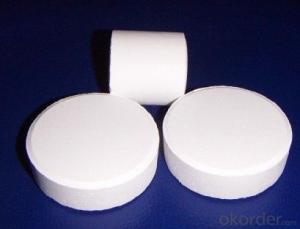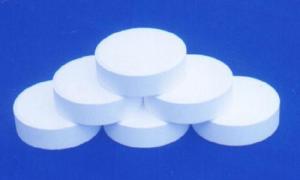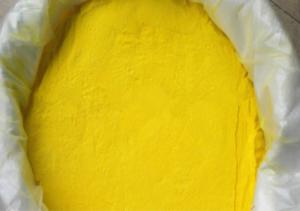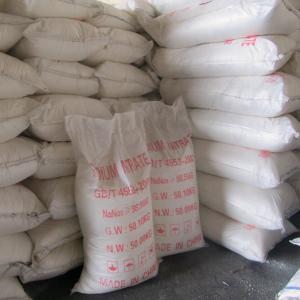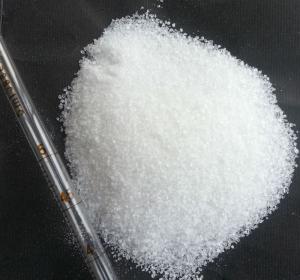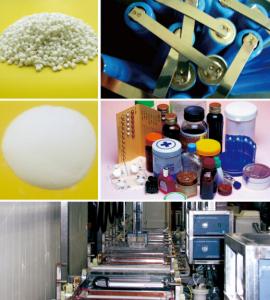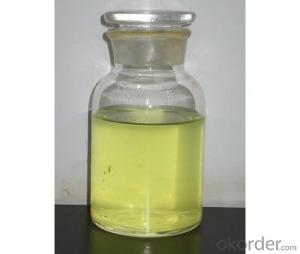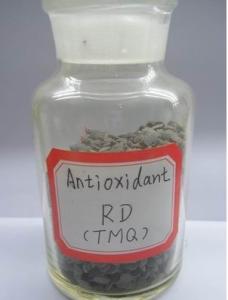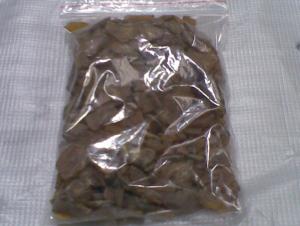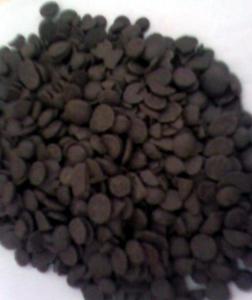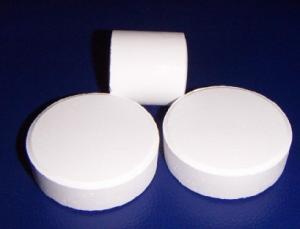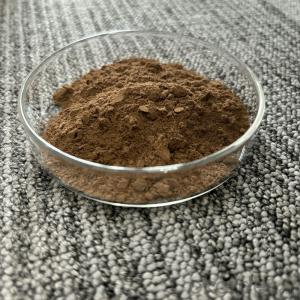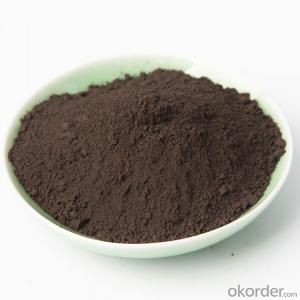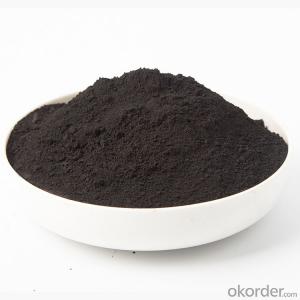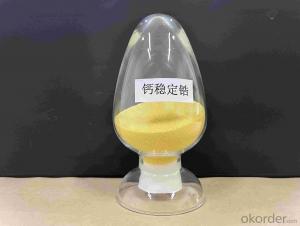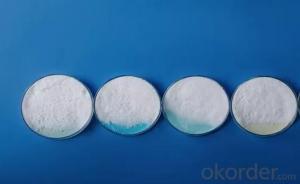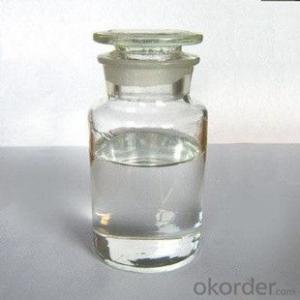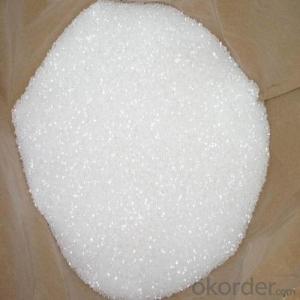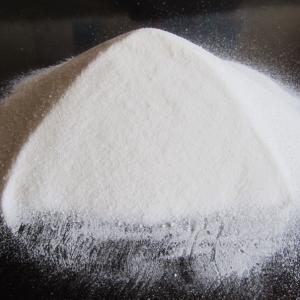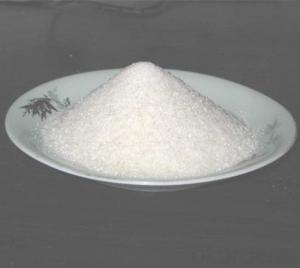TCCA Chlorine Tablet/Powder/Granular For Water Treatment Chemical
- Loading Port:
- Tianjin
- Payment Terms:
- TT OR LC
- Min Order Qty:
- 22 m.t
- Supply Capability:
- 8000 m.t/month
OKorder Service Pledge
OKorder Financial Service
You Might Also Like
TCCA 90% Powder, Granular, Tablets
Introduction:
TCCA White tablet with irritant chlorine odor. Slight solute in water. TCCA is the organic compound with the formula (C3Cl3N3O3). It is used as an
industrial disinfectant, bleaching agent and a reagent in organic synthesis.
This white crystalline powder, which has a strong "chlorine odour," is sometimes sold in tablet or granule form for domestic and industrial.
Specification:
Chemical Name | Trichloroisocyanuric Acid |
Molecular Formula | CONCL3 |
CAS Number | 87-90-1 |
Avaliable Chlorine %min | 90.00 |
Moisture content %,wt,Max | 0.30 |
PH Value (1% solution) | 2.7~3.3 |
Solubility 25℃ Water | 1.2g/100g |
Solubility 30℃ Acetone | 36g/100g |
Specific Gravity | 0.95(light)/1.20 |
Granular Particles Size
Mesh | 5~8 | 8~30 | 20~40 | 20~60 |
Tablets Forms
Weight | 200 gram | 150gram | 100gram | 50gram | 30gram | 20gram | 15gram | 10gram |
Diameter(mm) | 76 | 70 | 50 | 42 | 30 | 30 | 30 | 30 |
Height(mm) | 25 | 21 | 26 | 27 | 22 | 16 | 12 | 8 |
Multi-Functions
We made multifunctional tablets according to customers’ needs. For Instance, we press TCCA 90% granular with chemicals such as Boric Acid,. Sulfate Copper, Sulfate Aluminum And PAC.
Packing:
Granular& Powder:
50KG PLASTIC DRUMS/ FIBER DRUMS.25KG PLASTIC DRUMS/FIBER DRUMS.1000KG BIG BAGS.Or any other packages suggest by customers.
Tablets:
Inner Packing:
Individually Wrapped for 200gram,150gram, 100gram,1kg Plastic tube for 200gram,1kg plastic bottle & 5kg plastic bottle for smaller tablets
Outer Packing:
50KG,25KG,10KG, 5KG plastic Drums. Or any other package specified by customers, such as fiber drums or cantons.
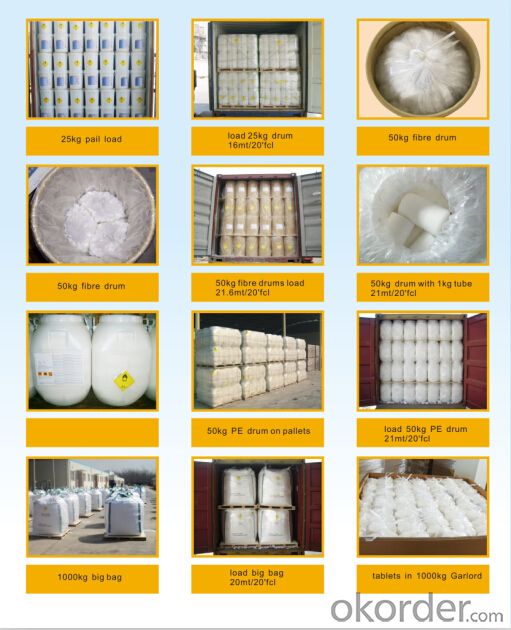
Delivery Port
Tianjin Port
Payment terms :
T/T,L/C at sight
Storage :
Shall be sealed and stored in the dry and ventilated place to prevent from rain ,high temperature and strong sunlight .
Sample management
Free sample to be offered before place an order.
1.What's the packing of chlorine dioxide tablet in your company ?
Adopt PE drum or iron drum, or according to customer's requirement .
2.What is the chlorine dioxide tablet of your company?
The MOQ of the chlorine dioxide is 5 metric ton.
3.What about the quality ?
Please rest assure the quality ,for the quality control ,the manufacturer follow the scientific managing system and measurement method with serial high-tech test equipments.
- Q:Chemical "catalyst can speed up the chemical reaction rate of other substances," this sentence right?
- Wrong, the catalyst is divided into two kinds, one is to speed up the chemical reaction speed, and the other is the opposite
- Q:How are a catalyst and an intermediate similar? How are they different?
- A catalyst speeds up the rate of a reaction by lowering the activation energy barrier which is, presumably, the energy required to achieve the reaction intermediate. Catalysts are also not consumed in the reaction, they are regenerated towards the end. A reaction intermediate is a configuration that a molecule takes prior to achieving it's lowest energy form which would signify the end of the reaction. Intermediate usually are hard to isolate because of the incentive to go to the most stable configuration. How are they different? A catalyst is not a part of the reaction product and it doesn't get consumed. An intermediate in a reaction is transformed into the product. How are they similar? Well, catalysts drive the reaction and make it easier for the reaction for follow through. Since intermediates are high energy and thermodynamics tells us that low energy is favorable, the incentive for a high energy intermediate to drive down to it's stable for can also drive a reaction. I hope that helps. I hope it makes sense.
- Q:In chemistry what is a catalyst and an example?
- Catalysts are substances that increase the rate of a reaction by providing a low energy shortcut from reactants to products. In some cases, reactions occur so slowly that without a catalyst, they are of little value. Nearly all reactions that occur in living cells require catalysts called enzymes- without them, life would be impossible. There are two important classes of catalysts: homogenous catalysts like enzymes and aqueous ions that are uniformly mixed with the reactants, and heterogeneous catalysts that provide a surface that holds and reconfigures the reactants in a way that is favorable for reaction. Examples of homogeneous catalysis. Catalysts in solution with the reactants usually provide fast reaction paths by allowing reactants to form an unstable intermediate that quickly decomposes into products. For example, the substitution reaction CH3CH2OH(g) + HCl(g) H2SO4 ----->CH3CH2Cl + H2O(ell) is catalyzed by acid because the ethanol is converted into unstable CH3CH2OH2+, which quickly reacts with Cl- to produce the products. Definition: A catalyst is a subtance that increases the rate of a chemical reaction by reducing the activation energy, but which is left unchanged by the reaction. Examples: A piece of platinum foil is a catalyst for the combustion of methane in air.
- Q:Chemical catalyst system baa?
- Can speed up or slow down the reaction rate without participating in the reaction of the material
- Q:What is the difference between biological enzymes and chemical catalysts?
- Biological enzymes are an environmentally friendly biocatalyst with greater superiority. Such as the reaction speed, processing conditions (such as temperature, PH value, etc.) more moderate, safe and easy to control the operation and can replace the strong alkali and other chemicals. The biological enzymes act only on specific substrates, with little damage to the substrate and the biodegradation of the treated wastewater to reduce water and energy consumption. After more than a century of research by scientists, more than 3,000 known enzymes are generally considered. The application of biological enzymes in the textile industry, initially the application of α-amylase in cotton fabric desizing process, and later developed into the cellulase used in denim washing and bio-polishing process, and now the development of pectinase to the biological scouring Technology, hydrogen peroxide enzyme catalytic decomposition technology, protease in silk and wool fiber applications
- Q:What kind of compounds or elements can be used as catalysts in high school chemistry? What is the catalyst for what?
- High school is the most common is manganese dioxide, and potassium permanganate heating oxygen, hydrogen peroxide decomposition are used, which is inferred in the problem there is a lot of
- Q:What kind of chemical reaction requires a catalyst?
- For example, the system of ammonia, S02 oxidation into SO3
- Q:What are the catalysts?
- The relationship between it and the reaction system is as highly selective (or specific) as the relationship with the key. A catalyst does not catalyze all chemical reactions, such as manganese dioxide in the decomposition of potassium chlorate Play a catalytic role to speed up the chemical reaction rate, but the other chemical reactions do not necessarily have a catalytic effect
- Q:In the chemical reaction will have to use the catalyst reaction, such as H2O2 === (MnO2) H2O + O2 ↑, then the catalyst in the end to participate in the reaction (that is, the catalyst itself is the reactant) If so, why are some of these substances in the reaction (these substances refer to the catalyst) in the reaction after the quality and nature of the change does not change?
- The composition, chemical properties and quality of the catalyst itself do not change before and after the reaction; its relationship with the reaction system is as highly selective (or specific) as the relationship between the lock and the key. A catalyst does not catalyze all chemical reactions. For example, manganese dioxide catalyzes the thermal decomposition of potassium chlorate, accelerates the reaction rate, but does not necessarily have a catalytic effect on other chemical reactions. Some chemical reactions are not only the only catalyst, such as potassium chlorate can be thermally decomposed to catalyze the presence of magnesium oxide, iron oxide and copper oxide and so on.
- Q:What is the relationship between the catalyst and the chemical reaction? What is the relationship between the enzyme and the catalyst?
- Enzymes are a kind of catalyst.
1. Manufacturer Overview |
|
|---|---|
| Location | |
| Year Established | |
| Annual Output Value | |
| Main Markets | |
| Company Certifications | |
2. Manufacturer Certificates |
|
|---|---|
| a) Certification Name | |
| Range | |
| Reference | |
| Validity Period | |
3. Manufacturer Capability |
|
|---|---|
| a)Trade Capacity | |
| Nearest Port | |
| Export Percentage | |
| No.of Employees in Trade Department | |
| Language Spoken: | |
| b)Factory Information | |
| Factory Size: | |
| No. of Production Lines | |
| Contract Manufacturing | |
| Product Price Range | |
Send your message to us
TCCA Chlorine Tablet/Powder/Granular For Water Treatment Chemical
- Loading Port:
- Tianjin
- Payment Terms:
- TT OR LC
- Min Order Qty:
- 22 m.t
- Supply Capability:
- 8000 m.t/month
OKorder Service Pledge
OKorder Financial Service
Similar products
New products
Hot products
Hot Searches
